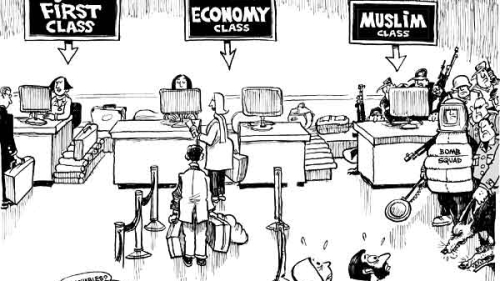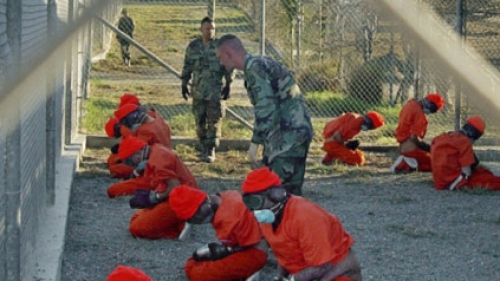a:19:{s:8:"theTitle";s:16:"Pragmatic Racism";s:12:"thePermalink";s:49:"https://www.islamicity.org/8553/pragmatic-racism/";s:13:"theAuthorName";s:17:"Robert C. Koehler";s:12:"theThumbnail";s:0:"";s:6:"isWhat";s:7:"article";s:7:"theIcon";s:0:"";s:8:"theEmbed";s:0:"";s:11:"theCategory";s:44:"cannot-retrieve-category-see-cell-part-1.php";s:6:"theTag";s:36:"george w. bush|/topics/george-w-bush";s:7:"theDate";s:10:"Sep 7 2012";s:11:"theDate_ORG";s:42:"September 6, 2012 {wpcf-soft-date engaged}";s:9:"theAuthor";s:38:"Robert C. Koehler|/by/robert-c-koehler";s:5:"theID";i:8553;s:14:"theReadingTime";s:6:"7 min.";s:10:"theExcerpt";s:266:"No, it's not the brutal, hate-twisted racism of the old days. Today's Republicans are capable of adoring select right-wing African-Americans. The Jim Crow revival they're pushing - the large-scale disenfranchisement of primarily minority voters - is pragmatic. ";s:12:"theTitle_ORG";s:16:"Pragmatic Racism";s:25:"processRelatedFacetsTitle";s:0:"";s:15:"whereItCameFrom";s:52:"content.php & related posts > post_tag=george-w-bush";s:8:"theFacet";s:0:"";}
a:19:{s:8:"theTitle";s:18:"A farewell to Iraq";s:12:"thePermalink";s:51:"https://www.islamicity.org/4530/a-farewell-to-iraq/";s:13:"theAuthorName";s:16:"Sabria Chowdhury";s:12:"theThumbnail";s:0:"";s:6:"isWhat";s:7:"article";s:7:"theIcon";s:0:"";s:8:"theEmbed";s:0:"";s:11:"theCategory";s:44:"cannot-retrieve-category-see-cell-part-1.php";s:6:"theTag";s:36:"george w. bush|/topics/george-w-bush";s:7:"theDate";s:11:"Oct 25 2011";s:11:"theDate_ORG";s:16:"October 25, 2011";s:9:"theAuthor";s:37:"Sabria Chowdhury|/by/sabria-chowdhury";s:5:"theID";i:4530;s:14:"theReadingTime";s:6:"8 min.";s:10:"theExcerpt";s:187:"Those who oppose the US departure from Iraq are perhaps forgetting or choosing to forget that it was a mutual decision taken by Iraq and the US in 2008, when George W. Bush was president.";s:12:"theTitle_ORG";s:18:"A farewell to Iraq";s:25:"processRelatedFacetsTitle";s:0:"";s:15:"whereItCameFrom";s:52:"content.php & related posts > post_tag=george-w-bush";s:8:"theFacet";s:0:"";}
a:19:{s:8:"theTitle";s:45:"Inside the First Amendment: The 9/11 backlash";s:12:"thePermalink";s:76:"https://www.islamicity.org/4482/inside-the-first-amendment-the-911-backlash/";s:13:"theAuthorName";s:17:"Charles C. Haynes";s:12:"theThumbnail";s:0:"";s:6:"isWhat";s:7:"article";s:7:"theIcon";s:0:"";s:8:"theEmbed";s:0:"";s:11:"theCategory";s:44:"cannot-retrieve-category-see-cell-part-1.php";s:6:"theTag";s:33:"islamophobia|/topics/islamophobia";s:7:"theDate";s:11:"Sep 20 2011";s:11:"theDate_ORG";s:18:"September 20, 2011";s:9:"theAuthor";s:38:"Charles C. Haynes|/by/charles-c-haynes";s:5:"theID";i:4482;s:14:"theReadingTime";s:6:"5 min.";s:10:"theExcerpt";s:125:"Contrary to the anti-Islam propaganda, Muslims and Muslim institutions in the U.S. are allies in the fight against extremism.";s:12:"theTitle_ORG";s:45:"Inside the First Amendment: The 9/11 backlash";s:25:"processRelatedFacetsTitle";s:0:"";s:15:"whereItCameFrom";s:52:"content.php & related posts > post_tag=george-w-bush";s:8:"theFacet";s:0:"";}
a:19:{s:8:"theTitle";s:62:"Goldhagen's insincere attempt to explain eliminationist policy";s:12:"thePermalink";s:94:"https://www.islamicity.org/4260/goldhagens-insincere-attempt-to-explain-eliminationist-policy/";s:13:"theAuthorName";s:14:"Habib Siddiqui";s:12:"theThumbnail";s:0:"";s:6:"isWhat";s:7:"article";s:7:"theIcon";s:0:"";s:8:"theEmbed";s:0:"";s:11:"theCategory";s:44:"cannot-retrieve-category-see-cell-part-1.php";s:6:"theTag";s:36:"george w. bush|/topics/george-w-bush";s:7:"theDate";s:11:"Apr 26 2011";s:11:"theDate_ORG";s:14:"April 26, 2011";s:9:"theAuthor";s:33:"Habib Siddiqui|/by/habib-siddiqui";s:5:"theID";i:4260;s:14:"theReadingTime";s:7:"15 min.";s:10:"theExcerpt";s:287:"Why do some people torture and others similarly positioned do not? On a larger scale, why do some groups of people perpetrate mass murder, including slaughtering children, and others who find themselves in very much the same circumstances, say to deprivation or of being at war, do not? ";s:12:"theTitle_ORG";s:62:"Goldhagen's insincere attempt to explain eliminationist policy";s:25:"processRelatedFacetsTitle";s:0:"";s:15:"whereItCameFrom";s:52:"content.php & related posts > post_tag=george-w-bush";s:8:"theFacet";s:0:"";}
a:19:{s:8:"theTitle";s:13:"Insanity Dawn";s:12:"thePermalink";s:46:"https://www.islamicity.org/4229/insanity-dawn/";s:13:"theAuthorName";s:17:"Robert C. Koehler";s:12:"theThumbnail";s:0:"";s:6:"isWhat";s:7:"article";s:7:"theIcon";s:0:"";s:8:"theEmbed";s:0:"";s:11:"theCategory";s:44:"cannot-retrieve-category-see-cell-part-1.php";s:6:"theTag";s:43:"conflicts and war|/topics/conflicts-and-war";s:7:"theDate";s:11:"Mar 31 2011";s:11:"theDate_ORG";s:14:"March 31, 2011";s:9:"theAuthor";s:38:"Robert C. Koehler|/by/robert-c-koehler";s:5:"theID";i:4229;s:14:"theReadingTime";s:6:"7 min.";s:10:"theExcerpt";s:296:"The "just war" theory is the shockingly effective con game of the military-industrial complex. Each new war we launch is just. Each new war is an exception to the history of barbarism and disaster that characterize all, or almost all (depending on how closely you decide to look), previous wars. ";s:12:"theTitle_ORG";s:13:"Insanity Dawn";s:25:"processRelatedFacetsTitle";s:0:"";s:15:"whereItCameFrom";s:52:"content.php & related posts > post_tag=george-w-bush";s:8:"theFacet";s:0:"";}
a:19:{s:8:"theTitle";s:22:"Leaving Saladin behind";s:12:"thePermalink";s:55:"https://www.islamicity.org/4181/leaving-saladin-behind/";s:13:"theAuthorName";s:10:"Hind Makki";s:12:"theThumbnail";s:87:"/global/images/photo/IC-Articles/saladinfortress__1200x400.JPG";s:6:"isWhat";s:7:"article";s:7:"theIcon";s:0:"";s:8:"theEmbed";s:0:"";s:11:"theCategory";s:44:"cannot-retrieve-category-see-cell-part-1.php";s:6:"theTag";s:43:"conflicts and war|/topics/conflicts-and-war";s:7:"theDate";s:10:"Mar 5 2011";s:11:"theDate_ORG";s:38:"March 4, 2011 {wpcf-soft-date engaged}";s:9:"theAuthor";s:25:"Hind Makki|/by/hind-makki";s:5:"theID";i:4181;s:14:"theReadingTime";s:6:"8 min.";s:10:"theExcerpt";s:292:"President George W. Bush's use of the word "crusade" in the days after the September 11, 2001 terror attacks triggered a passionate response from Muslim communities all over the world. Many Muslims believed Mr. Bush used this word to broadcast his intentions to wage war on Islam and Muslims.";s:12:"theTitle_ORG";s:22:"Leaving Saladin behind";s:25:"processRelatedFacetsTitle";s:0:"";s:15:"whereItCameFrom";s:52:"content.php & related posts > post_tag=george-w-bush";s:8:"theFacet";s:0:"";}
a:19:{s:8:"theTitle";s:29:"Iraq War, Fifteen Years Later";s:12:"thePermalink";s:53:"https://www.islamicity.org/14277/fifteen-years-later/";s:13:"theAuthorName";s:11:"James Zogby";s:12:"theThumbnail";s:84:"http://media.islamicity.org/wp-content/uploads/2018/02/iStock-139902997GraveYard.jpg";s:6:"isWhat";s:7:"article";s:7:"theIcon";s:0:"";s:8:"theEmbed";s:0:"";s:11:"theCategory";s:44:"cannot-retrieve-category-see-cell-part-1.php";s:6:"theTag";s:61:"weapon of mass destruction|/topics/weapon-of-mass-destruction";s:7:"theDate";s:11:"Feb 21 2018";s:11:"theDate_ORG";s:42:"February 16, 2018 {wpcf-soft-date engaged}";s:9:"theAuthor";s:27:"James Zogby|/by/james-zogby";s:5:"theID";i:14277;s:14:"theReadingTime";s:6:"7 min.";s:10:"theExcerpt";s:186:"Over the next few weeks, I want to take a look back to February and March of 2003, to those fateful days leading up to the Bush Administration's disastrous invasion and occupation ......";s:12:"theTitle_ORG";s:29:"Iraq War, Fifteen Years Later";s:25:"processRelatedFacetsTitle";s:0:"";s:15:"whereItCameFrom";s:52:"content.php & related posts > post_tag=george-w-bush";s:8:"theFacet";s:0:"";}
a:19:{s:8:"theTitle";s:49:"Lies and Deceptions come easy for the Republicans";s:12:"thePermalink";s:82:"https://www.islamicity.org/9958/lies-and-deceptions-come-easy-for-the-republicans/";s:13:"theAuthorName";s:14:"Habib Siddiqui";s:12:"theThumbnail";s:71:"http://media.islamicity.org/wp-content/uploads/2016/02/RepublicanHH.jpg";s:6:"isWhat";s:7:"article";s:7:"theIcon";s:0:"";s:8:"theEmbed";s:0:"";s:11:"theCategory";s:44:"cannot-retrieve-category-see-cell-part-1.php";s:6:"theTag";s:27:"elections|/topics/elections";s:7:"theDate";s:11:"Feb 20 2016";s:11:"theDate_ORG";s:42:"February 19, 2016 {wpcf-soft-date engaged}";s:9:"theAuthor";s:33:"Habib Siddiqui|/by/habib-siddiqui";s:5:"theID";i:9958;s:14:"theReadingTime";s:6:"9 min.";s:10:"theExcerpt";s:103:"George W. Bush’s Administration sold us the war against Iraq when it had no proof that the Saddam ...";s:12:"theTitle_ORG";s:49:"Lies and Deceptions come easy for the Republicans";s:25:"processRelatedFacetsTitle";s:0:"";s:15:"whereItCameFrom";s:52:"content.php & related posts > post_tag=george-w-bush";s:8:"theFacet";s:0:"";}
a:19:{s:8:"theTitle";s:20:"Profiling Should End";s:12:"thePermalink";s:53:"https://www.islamicity.org/5778/profiling-should-end/";s:13:"theAuthorName";s:11:"James Zogby";s:12:"theThumbnail";s:97:"/global/images/photo/IC-Articles/khalil-bendib-muslim-class__600x452.JPG";s:6:"isWhat";s:7:"article";s:7:"theIcon";s:0:"";s:8:"theEmbed";s:0:"";s:11:"theCategory";s:44:"cannot-retrieve-category-see-cell-part-1.php";s:6:"theTag";s:33:"barack obama|/topics/barack-obama";s:7:"theDate";s:10:"May 9 2014";s:11:"theDate_ORG";s:36:"May 9, 2014 {wpcf-soft-date engaged}";s:9:"theAuthor";s:27:"James Zogby|/by/james-zogby";s:5:"theID";i:5778;s:14:"theReadingTime";s:6:"6 min.";s:10:"theExcerpt";s:235:"I can speak from experience, having been on the receiving end of such behaviors during this period. The process of being singled out, rudely searched, and treated as a suspect in front of fellow passengers was hurtful and embarrassing.";s:12:"theTitle_ORG";s:20:"Profiling Should End";s:25:"processRelatedFacetsTitle";s:0:"";s:15:"whereItCameFrom";s:52:"content.php & related posts > post_tag=george-w-bush";s:8:"theFacet";s:0:"";}
a:19:{s:8:"theTitle";s:34:"Gitmo - America's Legal Black Hole";s:12:"thePermalink";s:64:"https://www.islamicity.org/5105/gitmo-americas-legal-black-hole/";s:13:"theAuthorName";s:14:"Habib Siddiqui";s:12:"theThumbnail";s:96:"/global/images/photo/IC-Articles/r-GUANTANAMO-BAY-large570__570x238.JPG";s:6:"isWhat";s:7:"article";s:7:"theIcon";s:0:"";s:8:"theEmbed";s:0:"";s:11:"theCategory";s:44:"cannot-retrieve-category-see-cell-part-1.php";s:6:"theTag";s:33:"barack obama|/topics/barack-obama";s:7:"theDate";s:11:"Jan 17 2013";s:11:"theDate_ORG";s:41:"January 16, 2013 {wpcf-soft-date engaged}";s:9:"theAuthor";s:33:"Habib Siddiqui|/by/habib-siddiqui";s:5:"theID";i:5105;s:14:"theReadingTime";s:6:"9 min.";s:10:"theExcerpt";s:257:"... al-Hajj shared his prison life -- how he and other fellow prisoners were tortured inhumanly. In contrast to government claims, he saw firsthand the flushing of the Qur'an in the toilet and stepping on it by Gitmo prison guards and interrogators. ";s:12:"theTitle_ORG";s:34:"Gitmo - America's Legal Black Hole";s:25:"processRelatedFacetsTitle";s:0:"";s:15:"whereItCameFrom";s:52:"content.php & related posts > post_tag=george-w-bush";s:8:"theFacet";s:0:"";}
a:19:{s:8:"theTitle";s:55:"Rhetorically Speaking: US Elections and the Middle East";s:12:"thePermalink";s:87:"https://www.islamicity.org/8577/rhetorically-speaking-us-elections-and-the-middle-east/";s:13:"theAuthorName";s:12:"Ramzy Baroud";s:12:"theThumbnail";s:0:"";s:6:"isWhat";s:7:"article";s:7:"theIcon";s:0:"";s:8:"theEmbed";s:0:"";s:11:"theCategory";s:44:"cannot-retrieve-category-see-cell-part-1.php";s:6:"theTag";s:37:"foreign policy|/topics/foreign-policy";s:7:"theDate";s:11:"Oct 20 2012";s:11:"theDate_ORG";s:41:"October 18, 2012 {wpcf-soft-date engaged}";s:9:"theAuthor";s:29:"Ramzy Baroud|/by/ramzy-baroud";s:5:"theID";i:8577;s:14:"theReadingTime";s:6:"9 min.";s:10:"theExcerpt";s:117:"There is little historic evidence that US foreign policy in the Arab world has been guided by moral compulsion. ";s:12:"theTitle_ORG";s:55:"Rhetorically Speaking: US Elections and the Middle East";s:25:"processRelatedFacetsTitle";s:0:"";s:15:"whereItCameFrom";s:52:"content.php & related posts > post_tag=george-w-bush";s:8:"theFacet";s:0:"";}
a:19:{s:8:"theTitle";s:16:"Pragmatic Racism";s:12:"thePermalink";s:49:"https://www.islamicity.org/8553/pragmatic-racism/";s:13:"theAuthorName";s:17:"Robert C. Koehler";s:12:"theThumbnail";s:0:"";s:6:"isWhat";s:7:"article";s:7:"theIcon";s:0:"";s:8:"theEmbed";s:0:"";s:11:"theCategory";s:44:"cannot-retrieve-category-see-cell-part-1.php";s:6:"theTag";s:36:"george w. bush|/topics/george-w-bush";s:7:"theDate";s:10:"Sep 7 2012";s:11:"theDate_ORG";s:42:"September 6, 2012 {wpcf-soft-date engaged}";s:9:"theAuthor";s:38:"Robert C. Koehler|/by/robert-c-koehler";s:5:"theID";i:8553;s:14:"theReadingTime";s:6:"7 min.";s:10:"theExcerpt";s:266:"No, it's not the brutal, hate-twisted racism of the old days. Today's Republicans are capable of adoring select right-wing African-Americans. The Jim Crow revival they're pushing - the large-scale disenfranchisement of primarily minority voters - is pragmatic. ";s:12:"theTitle_ORG";s:16:"Pragmatic Racism";s:25:"processRelatedFacetsTitle";s:0:"";s:15:"whereItCameFrom";s:52:"content.php & related posts > post_tag=george-w-bush";s:8:"theFacet";s:0:"";}
a:19:{s:8:"theTitle";s:18:"A farewell to Iraq";s:12:"thePermalink";s:51:"https://www.islamicity.org/4530/a-farewell-to-iraq/";s:13:"theAuthorName";s:16:"Sabria Chowdhury";s:12:"theThumbnail";s:0:"";s:6:"isWhat";s:7:"article";s:7:"theIcon";s:0:"";s:8:"theEmbed";s:0:"";s:11:"theCategory";s:44:"cannot-retrieve-category-see-cell-part-1.php";s:6:"theTag";s:36:"george w. bush|/topics/george-w-bush";s:7:"theDate";s:11:"Oct 25 2011";s:11:"theDate_ORG";s:16:"October 25, 2011";s:9:"theAuthor";s:37:"Sabria Chowdhury|/by/sabria-chowdhury";s:5:"theID";i:4530;s:14:"theReadingTime";s:6:"8 min.";s:10:"theExcerpt";s:187:"Those who oppose the US departure from Iraq are perhaps forgetting or choosing to forget that it was a mutual decision taken by Iraq and the US in 2008, when George W. Bush was president.";s:12:"theTitle_ORG";s:18:"A farewell to Iraq";s:25:"processRelatedFacetsTitle";s:0:"";s:15:"whereItCameFrom";s:52:"content.php & related posts > post_tag=george-w-bush";s:8:"theFacet";s:0:"";}
a:19:{s:8:"theTitle";s:45:"Inside the First Amendment: The 9/11 backlash";s:12:"thePermalink";s:76:"https://www.islamicity.org/4482/inside-the-first-amendment-the-911-backlash/";s:13:"theAuthorName";s:17:"Charles C. Haynes";s:12:"theThumbnail";s:0:"";s:6:"isWhat";s:7:"article";s:7:"theIcon";s:0:"";s:8:"theEmbed";s:0:"";s:11:"theCategory";s:44:"cannot-retrieve-category-see-cell-part-1.php";s:6:"theTag";s:33:"islamophobia|/topics/islamophobia";s:7:"theDate";s:11:"Sep 20 2011";s:11:"theDate_ORG";s:18:"September 20, 2011";s:9:"theAuthor";s:38:"Charles C. Haynes|/by/charles-c-haynes";s:5:"theID";i:4482;s:14:"theReadingTime";s:6:"5 min.";s:10:"theExcerpt";s:125:"Contrary to the anti-Islam propaganda, Muslims and Muslim institutions in the U.S. are allies in the fight against extremism.";s:12:"theTitle_ORG";s:45:"Inside the First Amendment: The 9/11 backlash";s:25:"processRelatedFacetsTitle";s:0:"";s:15:"whereItCameFrom";s:52:"content.php & related posts > post_tag=george-w-bush";s:8:"theFacet";s:0:"";}
a:19:{s:8:"theTitle";s:62:"Goldhagen's insincere attempt to explain eliminationist policy";s:12:"thePermalink";s:94:"https://www.islamicity.org/4260/goldhagens-insincere-attempt-to-explain-eliminationist-policy/";s:13:"theAuthorName";s:14:"Habib Siddiqui";s:12:"theThumbnail";s:0:"";s:6:"isWhat";s:7:"article";s:7:"theIcon";s:0:"";s:8:"theEmbed";s:0:"";s:11:"theCategory";s:44:"cannot-retrieve-category-see-cell-part-1.php";s:6:"theTag";s:36:"george w. bush|/topics/george-w-bush";s:7:"theDate";s:11:"Apr 26 2011";s:11:"theDate_ORG";s:14:"April 26, 2011";s:9:"theAuthor";s:33:"Habib Siddiqui|/by/habib-siddiqui";s:5:"theID";i:4260;s:14:"theReadingTime";s:7:"15 min.";s:10:"theExcerpt";s:287:"Why do some people torture and others similarly positioned do not? On a larger scale, why do some groups of people perpetrate mass murder, including slaughtering children, and others who find themselves in very much the same circumstances, say to deprivation or of being at war, do not? ";s:12:"theTitle_ORG";s:62:"Goldhagen's insincere attempt to explain eliminationist policy";s:25:"processRelatedFacetsTitle";s:0:"";s:15:"whereItCameFrom";s:52:"content.php & related posts > post_tag=george-w-bush";s:8:"theFacet";s:0:"";}
a:19:{s:8:"theTitle";s:13:"Insanity Dawn";s:12:"thePermalink";s:46:"https://www.islamicity.org/4229/insanity-dawn/";s:13:"theAuthorName";s:17:"Robert C. Koehler";s:12:"theThumbnail";s:0:"";s:6:"isWhat";s:7:"article";s:7:"theIcon";s:0:"";s:8:"theEmbed";s:0:"";s:11:"theCategory";s:44:"cannot-retrieve-category-see-cell-part-1.php";s:6:"theTag";s:43:"conflicts and war|/topics/conflicts-and-war";s:7:"theDate";s:11:"Mar 31 2011";s:11:"theDate_ORG";s:14:"March 31, 2011";s:9:"theAuthor";s:38:"Robert C. Koehler|/by/robert-c-koehler";s:5:"theID";i:4229;s:14:"theReadingTime";s:6:"7 min.";s:10:"theExcerpt";s:296:"The "just war" theory is the shockingly effective con game of the military-industrial complex. Each new war we launch is just. Each new war is an exception to the history of barbarism and disaster that characterize all, or almost all (depending on how closely you decide to look), previous wars. ";s:12:"theTitle_ORG";s:13:"Insanity Dawn";s:25:"processRelatedFacetsTitle";s:0:"";s:15:"whereItCameFrom";s:52:"content.php & related posts > post_tag=george-w-bush";s:8:"theFacet";s:0:"";}
a:19:{s:8:"theTitle";s:22:"Leaving Saladin behind";s:12:"thePermalink";s:55:"https://www.islamicity.org/4181/leaving-saladin-behind/";s:13:"theAuthorName";s:10:"Hind Makki";s:12:"theThumbnail";s:87:"/global/images/photo/IC-Articles/saladinfortress__1200x400.JPG";s:6:"isWhat";s:7:"article";s:7:"theIcon";s:0:"";s:8:"theEmbed";s:0:"";s:11:"theCategory";s:44:"cannot-retrieve-category-see-cell-part-1.php";s:6:"theTag";s:43:"conflicts and war|/topics/conflicts-and-war";s:7:"theDate";s:10:"Mar 5 2011";s:11:"theDate_ORG";s:38:"March 4, 2011 {wpcf-soft-date engaged}";s:9:"theAuthor";s:25:"Hind Makki|/by/hind-makki";s:5:"theID";i:4181;s:14:"theReadingTime";s:6:"8 min.";s:10:"theExcerpt";s:292:"President George W. Bush's use of the word "crusade" in the days after the September 11, 2001 terror attacks triggered a passionate response from Muslim communities all over the world. Many Muslims believed Mr. Bush used this word to broadcast his intentions to wage war on Islam and Muslims.";s:12:"theTitle_ORG";s:22:"Leaving Saladin behind";s:25:"processRelatedFacetsTitle";s:0:"";s:15:"whereItCameFrom";s:52:"content.php & related posts > post_tag=george-w-bush";s:8:"theFacet";s:0:"";}
a:19:{s:8:"theTitle";s:29:"Iraq War, Fifteen Years Later";s:12:"thePermalink";s:53:"https://www.islamicity.org/14277/fifteen-years-later/";s:13:"theAuthorName";s:11:"James Zogby";s:12:"theThumbnail";s:84:"http://media.islamicity.org/wp-content/uploads/2018/02/iStock-139902997GraveYard.jpg";s:6:"isWhat";s:7:"article";s:7:"theIcon";s:0:"";s:8:"theEmbed";s:0:"";s:11:"theCategory";s:44:"cannot-retrieve-category-see-cell-part-1.php";s:6:"theTag";s:61:"weapon of mass destruction|/topics/weapon-of-mass-destruction";s:7:"theDate";s:11:"Feb 21 2018";s:11:"theDate_ORG";s:42:"February 16, 2018 {wpcf-soft-date engaged}";s:9:"theAuthor";s:27:"James Zogby|/by/james-zogby";s:5:"theID";i:14277;s:14:"theReadingTime";s:6:"7 min.";s:10:"theExcerpt";s:186:"Over the next few weeks, I want to take a look back to February and March of 2003, to those fateful days leading up to the Bush Administration's disastrous invasion and occupation ......";s:12:"theTitle_ORG";s:29:"Iraq War, Fifteen Years Later";s:25:"processRelatedFacetsTitle";s:0:"";s:15:"whereItCameFrom";s:52:"content.php & related posts > post_tag=george-w-bush";s:8:"theFacet";s:0:"";}
a:19:{s:8:"theTitle";s:49:"Lies and Deceptions come easy for the Republicans";s:12:"thePermalink";s:82:"https://www.islamicity.org/9958/lies-and-deceptions-come-easy-for-the-republicans/";s:13:"theAuthorName";s:14:"Habib Siddiqui";s:12:"theThumbnail";s:71:"http://media.islamicity.org/wp-content/uploads/2016/02/RepublicanHH.jpg";s:6:"isWhat";s:7:"article";s:7:"theIcon";s:0:"";s:8:"theEmbed";s:0:"";s:11:"theCategory";s:44:"cannot-retrieve-category-see-cell-part-1.php";s:6:"theTag";s:27:"elections|/topics/elections";s:7:"theDate";s:11:"Feb 20 2016";s:11:"theDate_ORG";s:42:"February 19, 2016 {wpcf-soft-date engaged}";s:9:"theAuthor";s:33:"Habib Siddiqui|/by/habib-siddiqui";s:5:"theID";i:9958;s:14:"theReadingTime";s:6:"9 min.";s:10:"theExcerpt";s:103:"George W. Bush’s Administration sold us the war against Iraq when it had no proof that the Saddam ...";s:12:"theTitle_ORG";s:49:"Lies and Deceptions come easy for the Republicans";s:25:"processRelatedFacetsTitle";s:0:"";s:15:"whereItCameFrom";s:52:"content.php & related posts > post_tag=george-w-bush";s:8:"theFacet";s:0:"";}
a:19:{s:8:"theTitle";s:20:"Profiling Should End";s:12:"thePermalink";s:53:"https://www.islamicity.org/5778/profiling-should-end/";s:13:"theAuthorName";s:11:"James Zogby";s:12:"theThumbnail";s:97:"/global/images/photo/IC-Articles/khalil-bendib-muslim-class__600x452.JPG";s:6:"isWhat";s:7:"article";s:7:"theIcon";s:0:"";s:8:"theEmbed";s:0:"";s:11:"theCategory";s:44:"cannot-retrieve-category-see-cell-part-1.php";s:6:"theTag";s:33:"barack obama|/topics/barack-obama";s:7:"theDate";s:10:"May 9 2014";s:11:"theDate_ORG";s:36:"May 9, 2014 {wpcf-soft-date engaged}";s:9:"theAuthor";s:27:"James Zogby|/by/james-zogby";s:5:"theID";i:5778;s:14:"theReadingTime";s:6:"6 min.";s:10:"theExcerpt";s:235:"I can speak from experience, having been on the receiving end of such behaviors during this period. The process of being singled out, rudely searched, and treated as a suspect in front of fellow passengers was hurtful and embarrassing.";s:12:"theTitle_ORG";s:20:"Profiling Should End";s:25:"processRelatedFacetsTitle";s:0:"";s:15:"whereItCameFrom";s:52:"content.php & related posts > post_tag=george-w-bush";s:8:"theFacet";s:0:"";}
a:19:{s:8:"theTitle";s:34:"Gitmo - America's Legal Black Hole";s:12:"thePermalink";s:64:"https://www.islamicity.org/5105/gitmo-americas-legal-black-hole/";s:13:"theAuthorName";s:14:"Habib Siddiqui";s:12:"theThumbnail";s:96:"/global/images/photo/IC-Articles/r-GUANTANAMO-BAY-large570__570x238.JPG";s:6:"isWhat";s:7:"article";s:7:"theIcon";s:0:"";s:8:"theEmbed";s:0:"";s:11:"theCategory";s:44:"cannot-retrieve-category-see-cell-part-1.php";s:6:"theTag";s:33:"barack obama|/topics/barack-obama";s:7:"theDate";s:11:"Jan 17 2013";s:11:"theDate_ORG";s:41:"January 16, 2013 {wpcf-soft-date engaged}";s:9:"theAuthor";s:33:"Habib Siddiqui|/by/habib-siddiqui";s:5:"theID";i:5105;s:14:"theReadingTime";s:6:"9 min.";s:10:"theExcerpt";s:257:"... al-Hajj shared his prison life -- how he and other fellow prisoners were tortured inhumanly. In contrast to government claims, he saw firsthand the flushing of the Qur'an in the toilet and stepping on it by Gitmo prison guards and interrogators. ";s:12:"theTitle_ORG";s:34:"Gitmo - America's Legal Black Hole";s:25:"processRelatedFacetsTitle";s:0:"";s:15:"whereItCameFrom";s:52:"content.php & related posts > post_tag=george-w-bush";s:8:"theFacet";s:0:"";}
a:19:{s:8:"theTitle";s:55:"Rhetorically Speaking: US Elections and the Middle East";s:12:"thePermalink";s:87:"https://www.islamicity.org/8577/rhetorically-speaking-us-elections-and-the-middle-east/";s:13:"theAuthorName";s:12:"Ramzy Baroud";s:12:"theThumbnail";s:0:"";s:6:"isWhat";s:7:"article";s:7:"theIcon";s:0:"";s:8:"theEmbed";s:0:"";s:11:"theCategory";s:44:"cannot-retrieve-category-see-cell-part-1.php";s:6:"theTag";s:37:"foreign policy|/topics/foreign-policy";s:7:"theDate";s:11:"Oct 20 2012";s:11:"theDate_ORG";s:41:"October 18, 2012 {wpcf-soft-date engaged}";s:9:"theAuthor";s:29:"Ramzy Baroud|/by/ramzy-baroud";s:5:"theID";i:8577;s:14:"theReadingTime";s:6:"9 min.";s:10:"theExcerpt";s:117:"There is little historic evidence that US foreign policy in the Arab world has been guided by moral compulsion. ";s:12:"theTitle_ORG";s:55:"Rhetorically Speaking: US Elections and the Middle East";s:25:"processRelatedFacetsTitle";s:0:"";s:15:"whereItCameFrom";s:52:"content.php & related posts > post_tag=george-w-bush";s:8:"theFacet";s:0:"";}
a:19:{s:8:"theTitle";s:16:"Pragmatic Racism";s:12:"thePermalink";s:49:"https://www.islamicity.org/8553/pragmatic-racism/";s:13:"theAuthorName";s:17:"Robert C. Koehler";s:12:"theThumbnail";s:0:"";s:6:"isWhat";s:7:"article";s:7:"theIcon";s:0:"";s:8:"theEmbed";s:0:"";s:11:"theCategory";s:44:"cannot-retrieve-category-see-cell-part-1.php";s:6:"theTag";s:36:"george w. bush|/topics/george-w-bush";s:7:"theDate";s:10:"Sep 7 2012";s:11:"theDate_ORG";s:42:"September 6, 2012 {wpcf-soft-date engaged}";s:9:"theAuthor";s:38:"Robert C. Koehler|/by/robert-c-koehler";s:5:"theID";i:8553;s:14:"theReadingTime";s:6:"7 min.";s:10:"theExcerpt";s:266:"No, it's not the brutal, hate-twisted racism of the old days. Today's Republicans are capable of adoring select right-wing African-Americans. The Jim Crow revival they're pushing - the large-scale disenfranchisement of primarily minority voters - is pragmatic. ";s:12:"theTitle_ORG";s:16:"Pragmatic Racism";s:25:"processRelatedFacetsTitle";s:0:"";s:15:"whereItCameFrom";s:52:"content.php & related posts > post_tag=george-w-bush";s:8:"theFacet";s:0:"";}

















